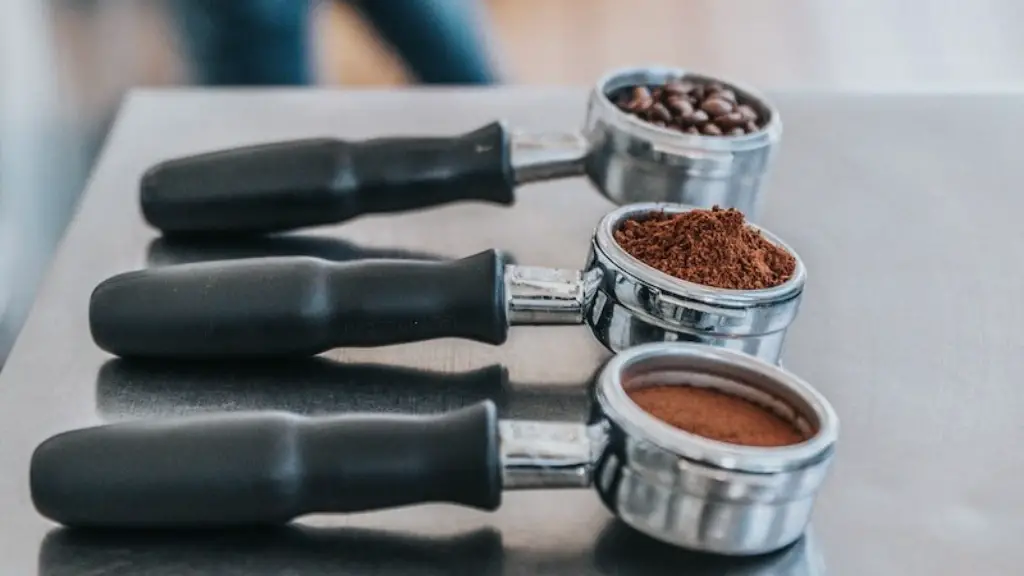Should You Drink Coffee While On Your Period?
Menstruation is a regular and healthy part of a woman’s life. For many women, coffee is an indispensable part of their daily routines. But when it comes to menstruation, should you still drink coffee, or avoid it at all costs?
There are both positive and negative effects of caffeine consumption during your period. The American College of Obstetrics and Gynecology has found that daily caffeine intake of 200 to 300 mg, the equivalent of two to four cups of coffee, does not increase the risk of adverse health effects for healthy adults. Caffeine can help with concentration and can reduce headaches in some people. This is why some women find a cup of coffee particularly helpful during their period and rely on it to help them fight exhaustion.
On the other hand, caffeine can interfere with your sleeping pattern, so it’s not recommended that you consume caffeine late in the day during your period. Caffeine can also increase heart rate and blood pressure, which can make pre-existing PMS symptoms such as cramps and anxiety worse. This is why some experts recommend avoiding coffee altogether during your period, especially if you’re prone to any premenstrual symptoms.
Furthermore, coffee or energy drinks with added sugar can cause an energy crash later on. Caf-feinated beverages act as diuretics, meaning they can cause dehydration and make your menstrual cramps worse. For this reason, it is always advisable to drink plenty of plain water in addition to coffee while on your period.
In general, it is best to limit caffeine consumption to no more than 200 mg per day, regardless of whether you’re on your period or not. Everyone has different sensitivities to caffeine, so it’s important to pay attention to your body and adjust your intake accordingly. Above all, it is best to listen to your body and exercise moderation when it comes to caffeine intake.
Managing Caffeine Intake During PMS
Premenstrual Syndrome (PMS) refers to the physical and emotional changes that many women experience in the days leading up to their periods. A study has found that caffeine can worsen PMS symptoms such as mood swings and irritability, so it is important to keep your caffeine intake to a minimum during this time.
Although caffeine can be helpful in keeping up with the demands of everyday life, it is important to be mindful of how much you are consuming. If you feel like you might be overconsuming caffeine or it is having an adverse effect on your mood, you can try replacing your morning cup of coffee with green tea or decaf tea as an alternative.
Also, it is important to make sure you’re getting enough good quality sleep. While it may be difficult to get the recommended 8 hours during your period, you can try to practice good sleep hygiene and create a routine that is conducive to getting adequate rest.
Herbal Alternatives to Coffee
One way to give your body a break during your period is to try some herbal teas, instead of coffee. Herbal teas like chamomile or peppermint tea can be soothing and help with cramps, as well as help you relax. Herbal teas are also an excellent way to get additional health benefits, such as: reduced inflammation, better digestion, and improved immune system.
The key is to find the herbal tea that works best for you and your body. Some women find that rose hip tea helps with their cramps, while others find that chamomile tea helps them relax. If you prefer your tea to have a little more punch, you can add a bit of ginger or cinnamon. Whatever you choose, try to limit your caffeine consumption and opt for these herbal alternatives for a different and more healthy kind of energy boost.
Eating a Balanced Diet During Your Period
It is important to maintain a healthy and balanced diet during your period. Eating a balanced diet full of nutrient-rich foods, such as fruits and vegetables, will help to keep your energy levels up and your hormones in balance. It is also important to limit your intake of processed foods, sugary snacks, and caffeinated beverages.
Furthermore, it is important to make sure you are getting enough vitamins and minerals, especially vitamin B-6 and magnesium, to help regulate your hormones and keep your energy levels up. If you eat a balanced diet and take vitamins, you may find that you can manage your period symptoms better and have more energy throughout the month.
Exercising During Your Period: Benefits and Guidance
Exercising during your period not only helps reduce menstrual cramps and increase endorphin levels, but it can also help your muscles stay relaxed. It has been shown to reduce stress levels, improve mood, and help with bloating. However, it is important to remember that if you usually do high intensity workouts, you may need to take it easy during your period in order to prevent yourself from overexerting yourself.
It is also important to tailor your exercises to your individual needs during this time. In general, yoga or light stretches can be good for helping to relieve tension and cramps, while aerobics or swimming can help to manage stress levels. If you do decide to do more intensive exercises, make sure you listen to your body and take breaks as needed.
Managing Stress and Anxiety During Your Period
Managing stress and anxiety during your period can be challenging. To help with stress and anxiety, it’s important to make sure you are getting enough rest and engaging in activities that can help reduce stress, such as going for a walk or doing yoga. In addition, it can be helpful to meditate for a few minutes every day as a way to calm your mind and refocus your thoughts.
Deep belly breathing can be useful as well. This technique can help to release tension in the body and provide relief from menstrual cramps. Try taking 5 to 10 slow, deep breaths in a row to help reduce stress levels and lower tension.
Creating a Supportive Environment During Your Period
It’s important to have a supportive environment when you are dealing with your period. Having a strong support system, whether it be friends, family, or a partner, can make a big difference in how you manage your menstrual symptoms and can help to alleviate stress.
It can also be helpful to make sure you have an understanding boss who can provide you with the flexibility to work from home or take some extra time off for rest and relaxation if needed. You don’t have to suffer in silence when you’re on your period – let your friends and family know how you’re feeling, and take the time to do the things that make you feel better.
Mindful Monologues During Your Period
One way of combating the negative self-talk that can occur during menstruation is to practice mindful monologues. You can do this by identifying any negative thoughts or feelings and replacing them with more positive and empowering thoughts. This can help you to reframe situations, shift your perspective and feel more confident.
This practice is a simple way to become more aware of your thoughts and help to reduce any anxiety and stress you may be feeling. It can also be combined with other forms of self-care, such as journaling or spending time outdoors, to help reduce stress and create a positive environment.
Conclusion
Drinking coffee while on your period may have both positive and negative effects. To determine whether it is right for you, it’s important to pay attention to how your body reacts to caffeine, and adjust your consumption accordingly. Whenever possible, it is best to opt for herbal alternatives and make sure you’re getting enough sleep and maintain a balanced diet. Additionally, creating a supportive environment and practicing mindful self-talk can help you to manage your period symptoms and feel better during this time.





